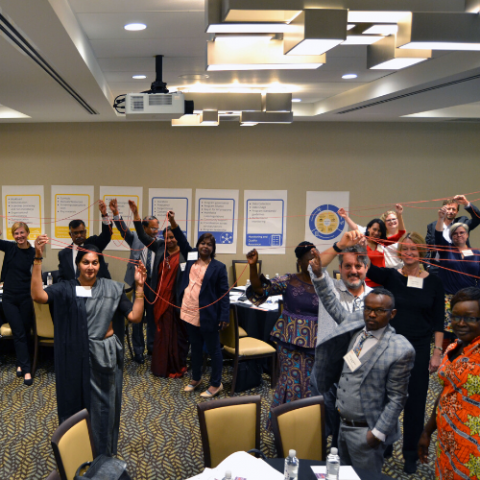January 2020 began a new phase of the Early Childhood Workforce Initiative, launched by ISSA and R4D in 2016 to support those who work with children ages 0 to 8 and their families. Throughout the coming years, the initiative will continue to enhance the knowledge base by increasing global landscape analysis, monitoring and mentoring the workforce as well as by working for the recognition of their profession. With ECD practitioners’ professional development at the core of its activities, ECWI plans to implement three main actions in the coming months, focused on generating more evidence-based data analysis, facilitating the use of one of the ECWI assessment tools and sharing the knowledge throughout the workforce of the countries involved.Still today, in many countries in the world, early childhood personnel are not required to have the same high qualifications and training as those practitioners dealing with older children. This is the case despite the extensive research which shows that the quality of these early years’ services depends very much on the role of its workforce. In order to raise awareness and draw recommendations on this, ECWI will be prepare two landscape analysis based on interviews, scientific literature and triangulation of available data that aim to better monitor and mentor ECD workforce as well as to recognize their profession. The goal is for program managers and policymakers to make use of these comprehensive analysis in their work.In 2019, after having developed the Home Visiting Workforce Needs Assessment Tool to help policy planning and personnel management on ECD home visiting programs, the initiative will develop a user’s guide to ensure country teams implement the tool in the most efficient way. This will enable them to take the lead when conducting the assessment and address the home visiting workforce in a more systematic manner.Once both activities are developed and carried out, ECWI team will focus on translating, packaging and disseminating the knowledge gathered so that a larger audience is reached through a more user-friendly material. Virtual learning calls will take place along the way and all the efforts will be put into addressing ECD workforce worldwide, maximizing the online and offline communication activities, setting ECWI as hub for their empowerment and knowledge enrichment.

